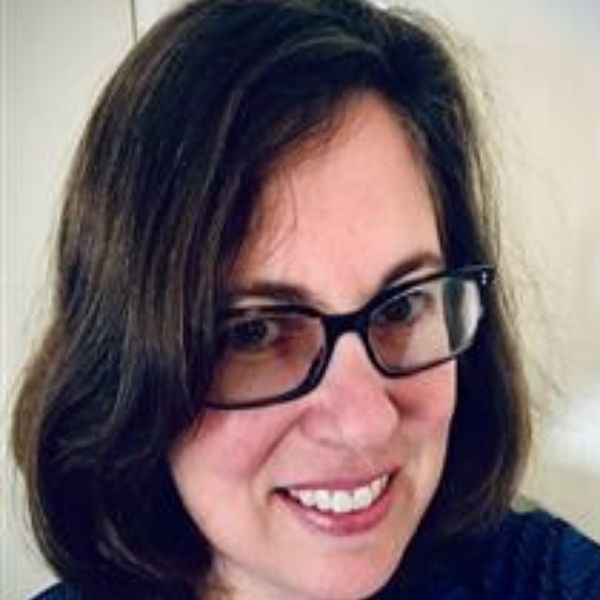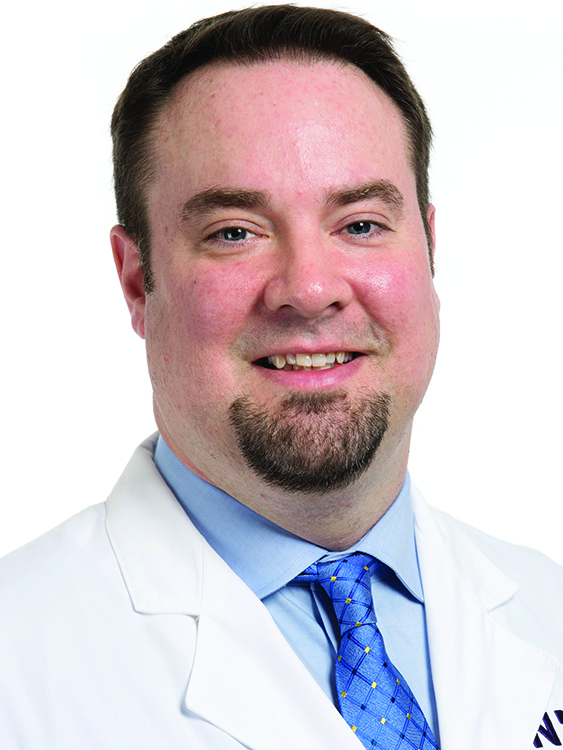With swift and certain movements, Dr. Timothy Brand stitches a new blood vessel to the patient’s heart, bypassing one that’s blocked.
Brand peers through surgical loupes at the heart’s intricate architecture as the whirring of the heart-lung machine and the sounds of his curated playlist – Mos Def, Beastie Boys, Linkin Park and more – fill the room.
Meanwhile, he keeps up a lighthearted banter with the surgical team members working intently with him on the coronary artery bypass graft. It’s clear that even in the seriousness of open-heart surgery, Brand is creating an atmosphere of warmth and camaraderie with his team.
It comes naturally, because once, he was one of them. Brand is a doctor who once was a nurse. (That's him in the center of the photo, performing heart bypass surgery to improve blood flow to the heart.)
Today, Brand, 46, is a cardiothoracic surgeon and surgical director for advanced heart failure at Novant Health Heart & Vascular Institute in Charlotte. And his background in nursing, he said, not only has helped him be a better doctor, it also helps him better appreciate the skills nurses bring to a surgical patient’s care.
Heart questions? It starts with your primary care provider.
“Our nurses have a different sense about who is sick – it’s just a different understanding,” Brand said. “As a nurse you develop ‘nurse’s intuition’. You walk into a room and you know if someone’s sick, or going to deteriorate, or if something’s not right.”
The surgeon, he explained, is typically “thinking about the person from a surgical perspective whereas the nurse is thinking about the whole person, even the next day when the patient is … ready to move to the floor. They think about the whole picture.”
A lunchtime realization
Brand’s journey to health care began in a roller skating rink.
“I was 2 or 3 and my mom fell and cut her chin,” he said. “I grabbed my little Fisher-Price doctor kit to help her. I wanted to help.” Even when Brand no longer carried his toy doctor kit everywhere, health care called. “I became an anesthesia tech my junior year of college at Wingate University,” he said. “I would shadow CRNAs (certified registered nurse anesthetists) and sit in on surgeries with them when I could.”
Nurse anesthesia fascinated him. “You’re this patient’s full advocate while they’re undergoing this big operation,” Brand said. He headed off to nursing school, got his degree and launched into work in an intensive care unit.
“As a nurse, I loved the connection with the patient. I love the science, and making them feel better,” he said. In the ICU, “you have to be very thoughtful, very quick and pay attention to detail.”
Brand moved to Charleston, South Carolina, to work as a nurse at MUSC Health University Medical Center, the hospital associated with the Medical University of South Carolina. On his first day on the job, a thought appeared from the blue.
“I was eating lunch on the front steps of the medical school building,” he recalled. “I was watching the students walk inside and I thought, ‘Maybe that’s where I belong.’”
Brand never stopped loving nursing, but he added to that a thirst for more science. “I wanted to know biochemistry, true deep physiology, pharmacology. I wanted to know it all. I felt like med school was a way to satisfy that.”
And so Brand, older than his peers and already a father, took the plunge and entered med school in 2008 at age 31. It was tough, intense and wonderful. “Med school is like trying to drink water from a firehose,” Brand said. “I’d been out of school seven, eight years. I was now taking advanced biochemistry and physiology and gross anatomy,” he said.
As a student, he wasn’t sure what area of medicine he wanted to focus on. Until the day he observed surgery on a thoracoabdominal aneurysm.
“I was helping as student, just standing there holding something. It’s a big incision and you see the whole aorta. It’s a … very involved operation. We were there from 8 in the morning to 10 at night. (Afterward), I was walking to my car and it felt like 20 minutes had passed. I felt like ‘I’m in the right place.’”
‘He gets it’
Back in the operating room during the recent coronary artery bypass graft, Brand secured a titanium plate to the patient’s sternum to close and stabilize the breastbone. He said others have commented that he runs a “very relaxed” OR. But the truth is closer to the old metaphor of the swimming duck – serene on the surface, paddling rapidly beneath the water. “There’s enough thought, concern, stress and adrenaline – it’ll take me 20 minutes to come down from that,” he said afterward.

Brand considers his move from nurse to doctor a lateral transition – a shift to a complementary profession.
“Being a nurse has made me a much better doctor because I understand what the patients and the nurses are going through,” he said. “As a cardiothoracic intensive care nurse, you spend those 12- to 14-hour shifts with one to two patients, two or three days in a row. You learn everything about that patient,” he said.
“I give the nurse time to do an assessment. I walk in and ask, ‘How are they doing?’ I want to hear what the nurse’s overall impression is at that point. They give me that feedback, and I make changes based on what they are telling me.”
Nurse Terri Reid has worked with Brand for as long as he’s been with Novant Health Heart & Vascular Institute and appreciates his commitment and demeanor. Perched on a stool as she monitored the recent bypass procedure, she explained: “He’s been a nurse, so he gets it.”
During operations, Brand’s team works as one.
“Our team is fantastic. We all get along very well. Everybody is exceptional at their job,” he said. He told the story of a procedure with a patient whose heart was weak. During the operation, the heart spontaneously ruptured. “I put my hand over it, and my assistant knew what I needed. We told the anesthesia team what was going on and everybody in that room went into the mode of knowing just what to do,” Brand said.
‘It’s the team’
Repairing the heart’s delicate machinery is intense, stress-packed work on the best of days, and it’s easy for the team to burn out, Brand said. Supporting one another and taking time away to refresh are crucial. So is celebrating success.
“I had a really sick patient come into my office in a wheelchair, essentially dying. I admitted her to the hospital,” Brand said. The patient was too ill for an operation and needed several days of support for her heart and lungs. When she was strong enough, Brand and his team replaced her mitral valve.
“I saw her back in my office at least a half-dozen times and every time she came in, she was better and stronger,” Brand said. “It’s very rewarding when you’re looking in their face and they’re fine – and they’re thankful for what we’ve done.”
And, he said, “anytime I get a compliment from a patient, it's not me, it's the team. That patient came in, had good pre-op care, then the nurses in the operating room and the CRNAs made them feel at ease and got them hooked up, then I and my assistants do our part. Then they have great recovery care in the ICU and on the floor. And then our outpatient nurse is so connected with them.”
As for the cardiac surgery that Brand has embraced as his mission, he called the care that Novant Health provides “exceptional.”
“Our patients do really, really well. We’re good at what we do. We get people through very, very complex things. You can get it done right, you can get it done well, you can get home and get it back to your life.”
From anesthesia tech to nurse to cardiothoracic surgeon, Brand’s delight in the field of medicine has never wavered. “I love my job,” he said. “I never have a day where I drive to work that I regret. I really care about my patients. I just want them to do well. I really care about the field of heart surgery. I want it to be full of precision and integrity, and I think we do that well here.”
Novant Health cardiologists are all heart.











